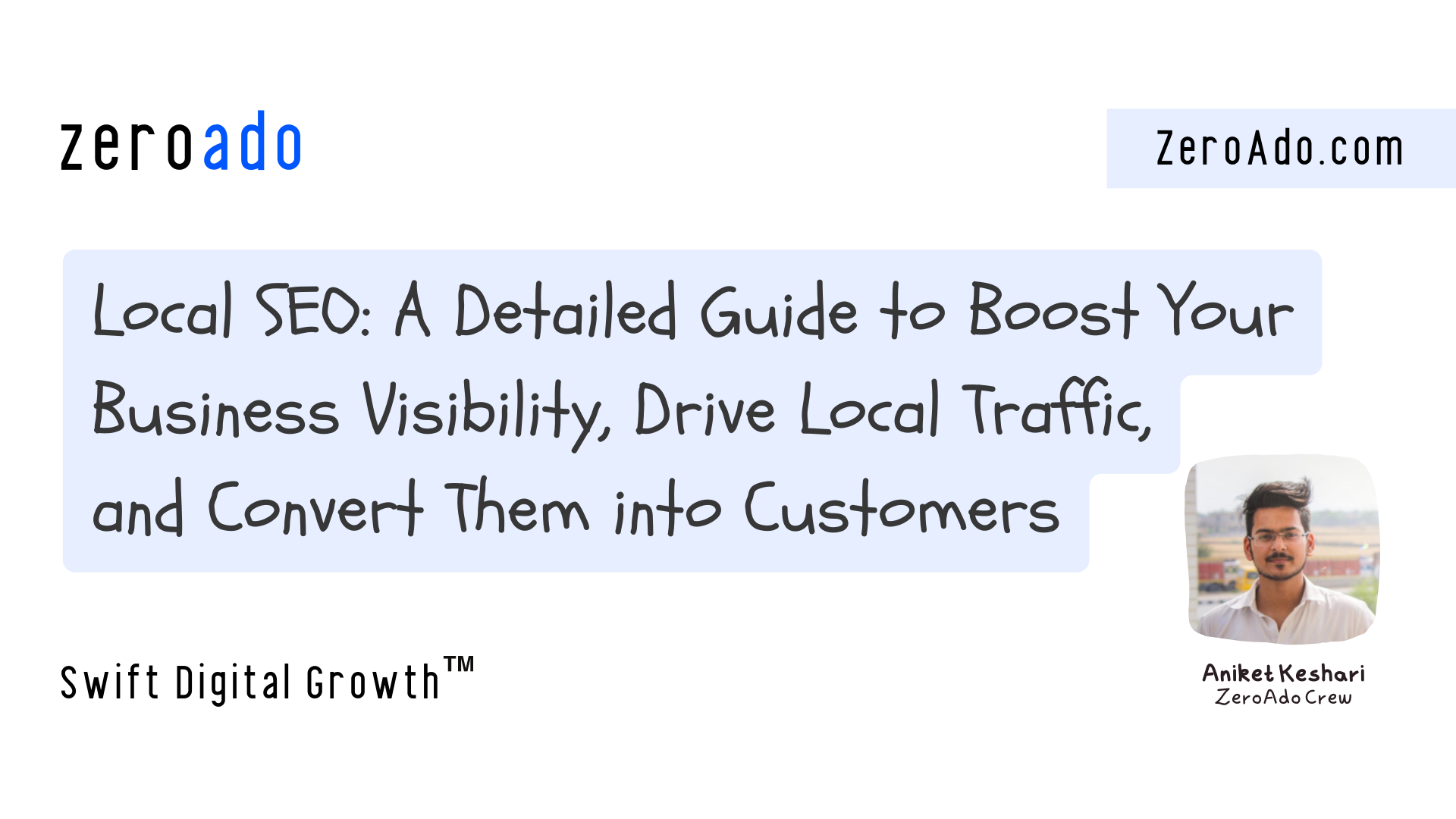- What is local SEO?
- Why is local SEO important for your business?
- How does local SEO work?
- Important elements of local SEO
- How to do local SEO?
- On-page optimization checklist for local SEO
- Off-page optimization checklist for local SEO
- Common mistakes in local SEO
- Ready to connect with your local audience through local SEO
There are various types of SEO practices, and one of the most important is local SEO.
When you Google words like “restaurants near me,” “laundry services in delhi,” or anything else. You might’ve noticed something results like this ?
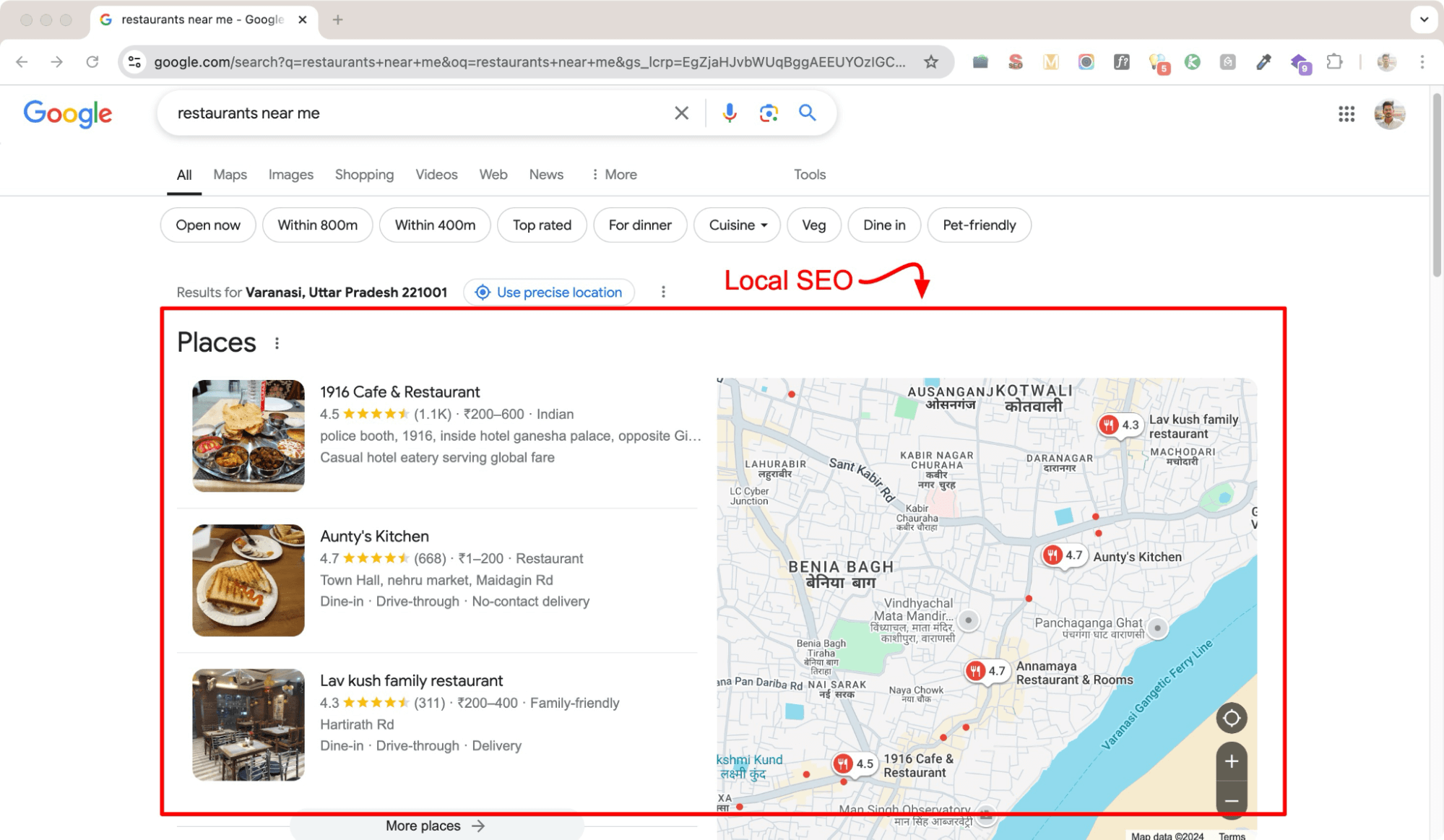
Oops! You’ve got my location–now don’t send me any gifts! ? But if this blog helps you in any way, feel free to send me a thank-you letter. Anyway, let’s get back to the topic.
The result you see above is called local SEO.
What is local SEO?
Local SEO or local search engine optimization is the process of optimizing your business profile. Improve its visibility in local search results on platforms like Google, Bing, Yahoo, etc.
For example, when someone searches for “coffee shops near me” or “best dentist in Indore,” local SEO ensures that your business ranks higher in the results, especially in Google Maps and local business listings.
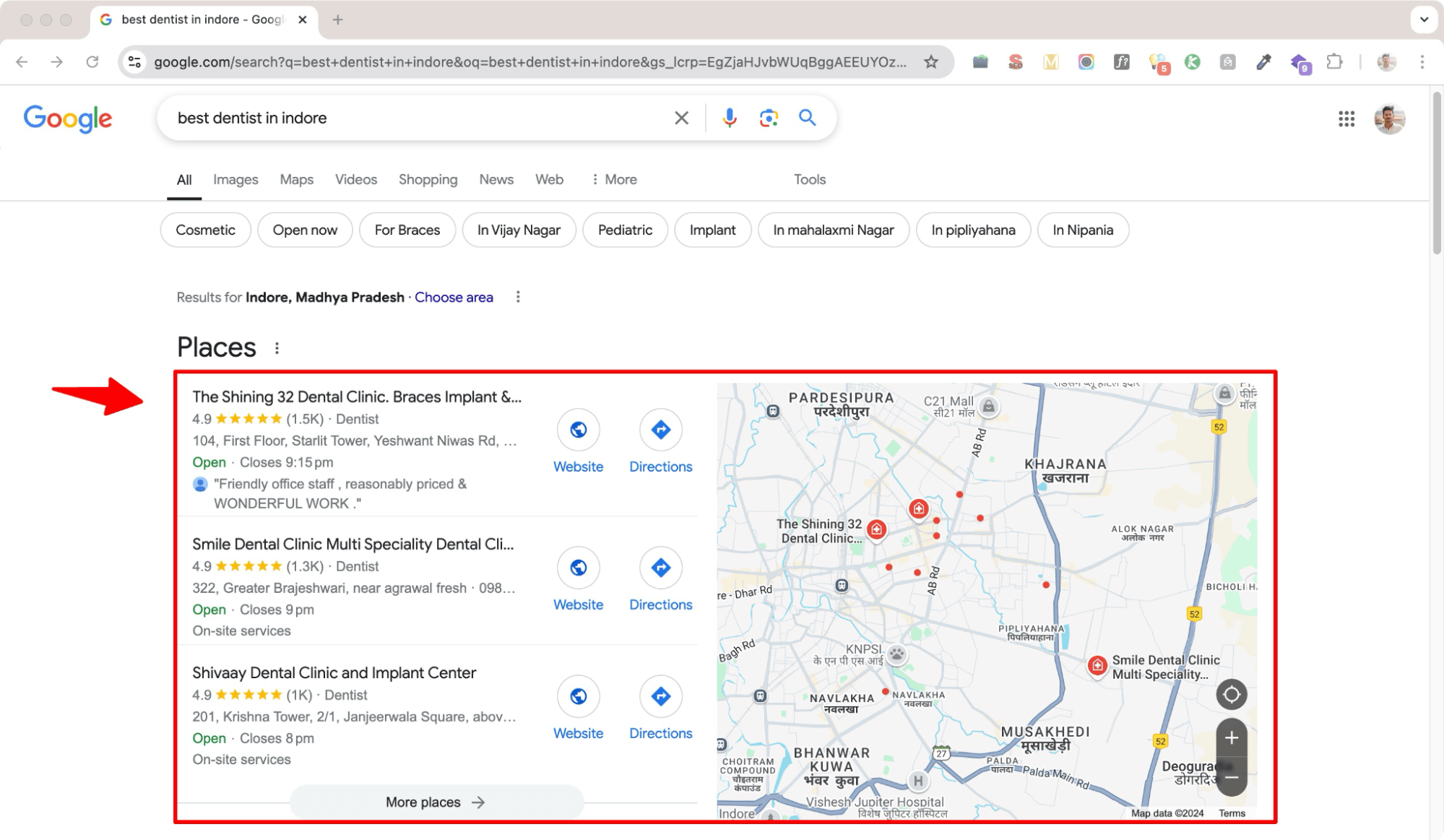
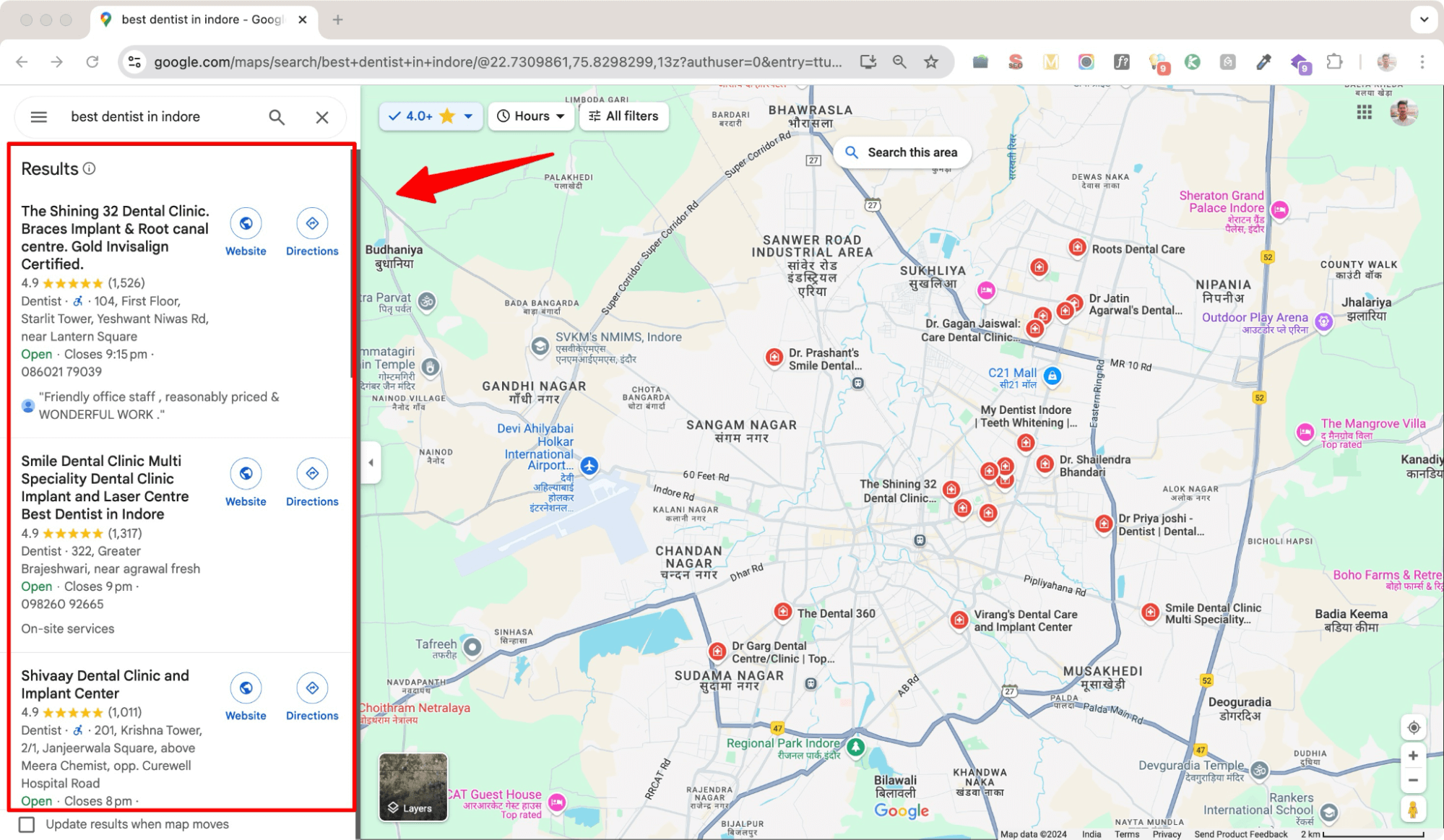
Now, one thing that confuses most people is how local SEO is different from regular SEO.
It’s because for local SEO, Google uses some different criteria and factors. Like proximity, relevance, and prominence, to deliver location-specific results.
But for regular SEO, it focuses on broader rankings factors like keyword relevance and website authority.
Don’t worry about proximity, relevance, and prominence if you’ve not understood that. I’ll come to that later in this blog under “How does local SEO work?”.
Why is local SEO important for your business?
I believe you’re already aware of the benefits of SEO, particularly the importance of local SEO, but let’s quickly break it down.
- Helps people nearby find you: Local SEO makes sure your business shows up when people nearby search for what you offer.
- Makes your business easy to find: It helps your business show up in local search results, Google Maps, and online directories. So customers can easily find you.
- Brings more customers: Local SEO brings people to your website or store who are looking for what you provide. This increases your chances of making sales.
- Build trust with reviews: Getting positive reviews from local customers helps your business look more trustworthy. This also encourages others to buy from you.
- Keeps you competitive: If your competitors are using local SEO, you need to use it too. Otherwise, you might lose potential customers to them.
Let’s see some insights of local SEO from Google!
→ 30% of all mobile searches are related to location.


In short, local SEO helps your business grow by connecting you with customers who are already searching for you in your area!
How does local SEO work?
Let’s say you need a plumber in your area and you Google “plumber near me”.
What happens next? ?
Google looks at several factors to decide which plumbers to show you. This is where local SEO comes into play.
Local SEO helps businesses show up when people like you search for services or products near them. Here’s how it works:
Relevance
Google tries to match your business to the user’s search. If you run a plumbing business and someone searches “plumber near me,” Google will show businesses that offer plumbing services, especially those that mention plumbing in their website content, business profile, and reviews.
Proximity
Google also looks at how close your business is to the person searching. For example, if you’re a plumber in Delhi, but the person searching is in another city, let’s say Mumbai. Then your business will not show up because there’s a plumber closer to them in Mumbai.
Prominence
Google considers how well-known and trusted your business is. If your business has good reviews, mentions on local websites, and a strong online presence, Google is more likely to show you in search results.

Local SEO helps your business rank higher in these local search results. Especially in what’s called the “Local Pack.” This is the special section at the top of search results that shows the top three businesses near the user.
Important elements of local SEO
Every day, Google delivers millions of local search results to help users find nearby businesses.
If you want your business to stand out and appear in these results, it’s essential to focus on the key elements of local SEO.
These elements work together to make your business rank well and reach the right audience.
Google Business Profile optimization
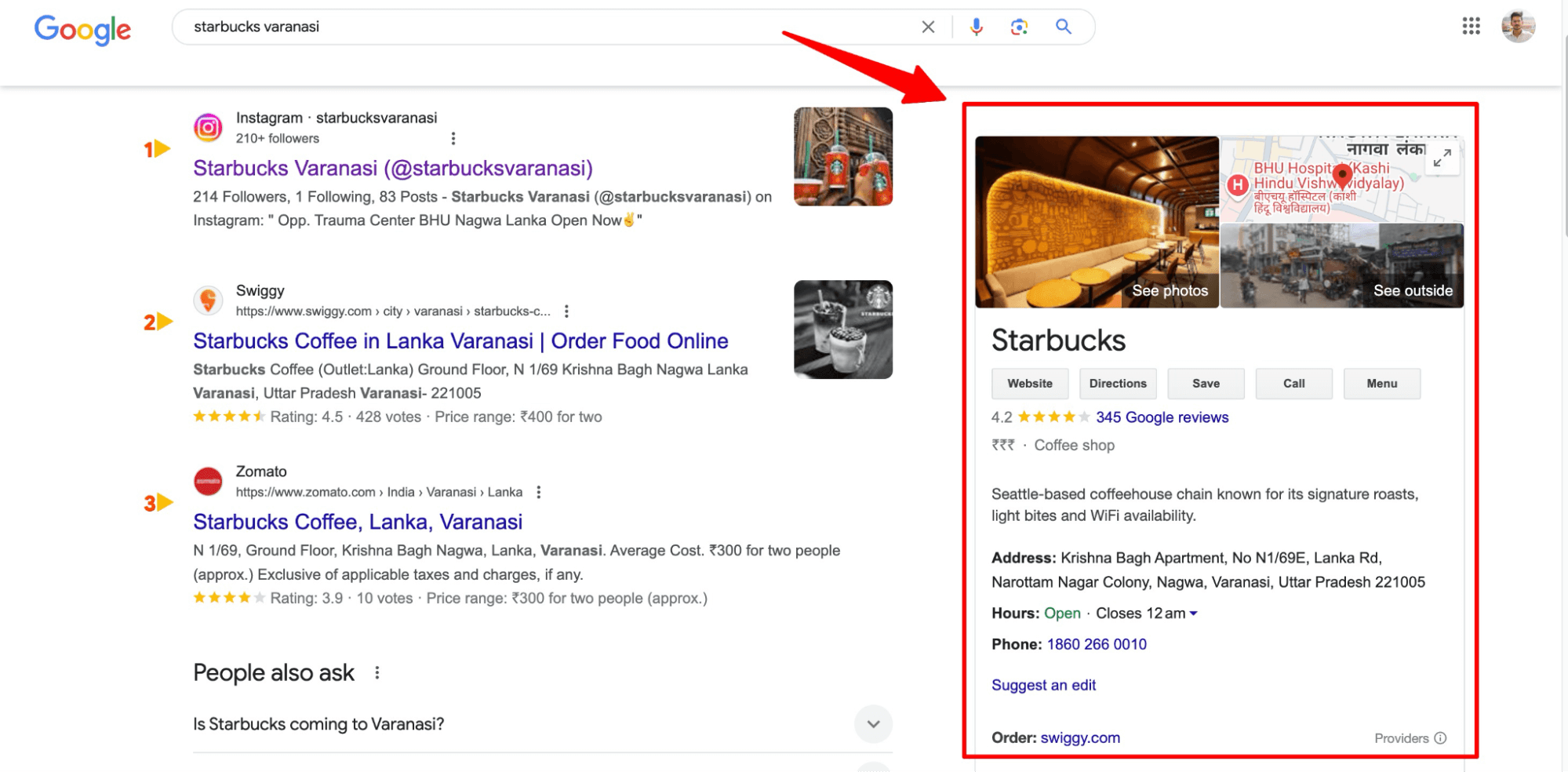
You might have heard about GMB. Well, it’s the short form of Google My Business, which is now known as Google Business Profile (GBP). It is one of the most important elements of local SEO. Why so?
Because if GBP is optimized properly, your business can appear in Google’s Local Pack. The map that displays the top three local results.
Local citation and directories
Citations are like shoutouts for your business online. They include NAP about your business.
→ Name
→ Address
→ Phone number

These details appear on platforms like local business directories, websites, or review sites.
Keeping your NAP consistent everywhere is important. It helps search engines, like Google, trust that your business is real and legitimate.
Think of it like filling out your details correctly on every form so people know it’s you.
For example: In the above image, Starbucks’ address is “Lanka Rd, Narottam Nagar Colony, Nagwa, Varanasi, Uttar Pradesh,” with the phone number 1860 266 0010.
If your information appears the same on Google Business Profile, Yelp, and Yellow Pages, search engines will recognize it as the same coffee shop. This consistency makes them more likely to show your business in search results.
But if one directory lists the address as “Lanka Rd, Nagar Colony” and another as “Narottam Nagar Colony,” it confused search engines. This inconsistency will hurt your visibility.
Some popular directories where you can list your business are – Yelp, Yellow Pages, and TripAdvisor.
Make sure your NAP is consistent everywhere–it’s a small effort that makes a big difference!
On-page SEO for local businesses
On-page SEO is basically about optimizing the content and structure of your website from a local SEO perspective.
Local keywords
Use location-based keywords in your titles, meta descriptions, headers, and website content.
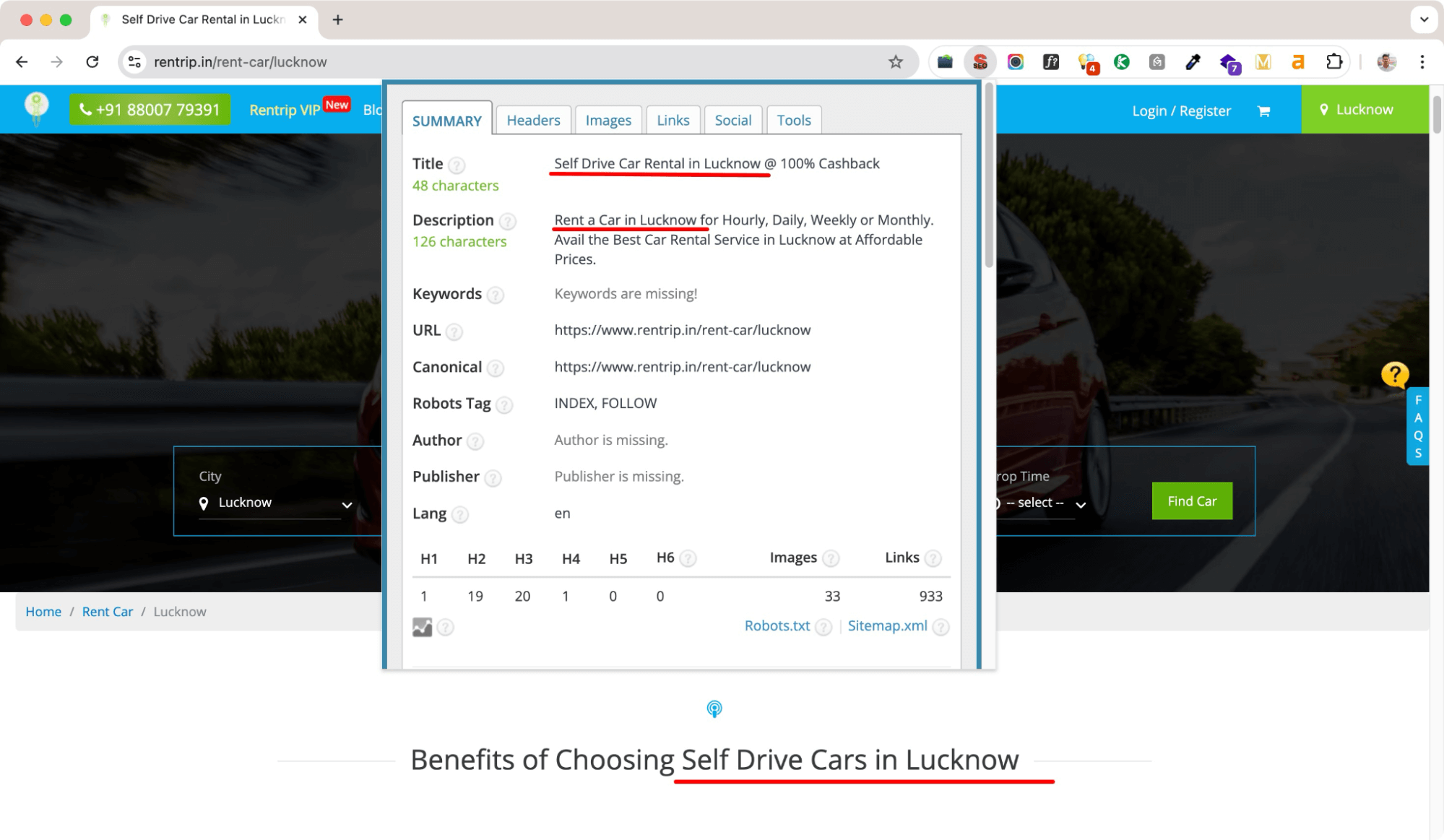
Local landing pages
If you operate in multiple locations, create individual pages for each location and highlight unique offerings and services.

Schema markup
Add a local business schema to provide search engines with more information about your business. Such as opening hours and service areas.

Localized content strategy
Localized content is essential to connect with your target audience. It’s a type of SEO content that aims to engage and resonate with local users.
This means you’ve to create content that speaks directly to your local audience. For this, you need to focus on topics, events, or issues that matter most to your community.
Some examples of localized content are
→ Write blogs about upcoming local events, trends, or community news.
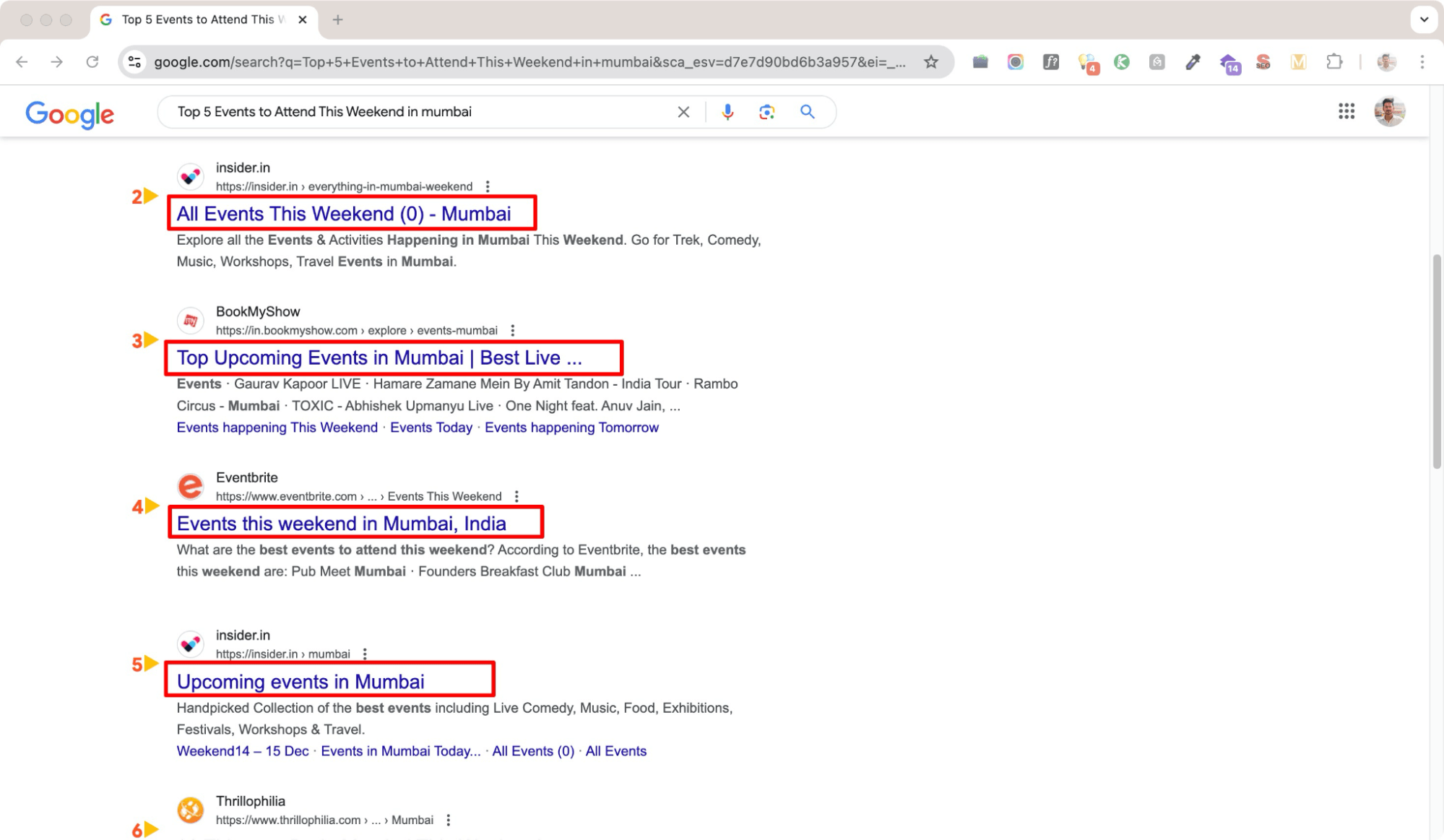
→ Create guides that offer helpful tips specific to your area.
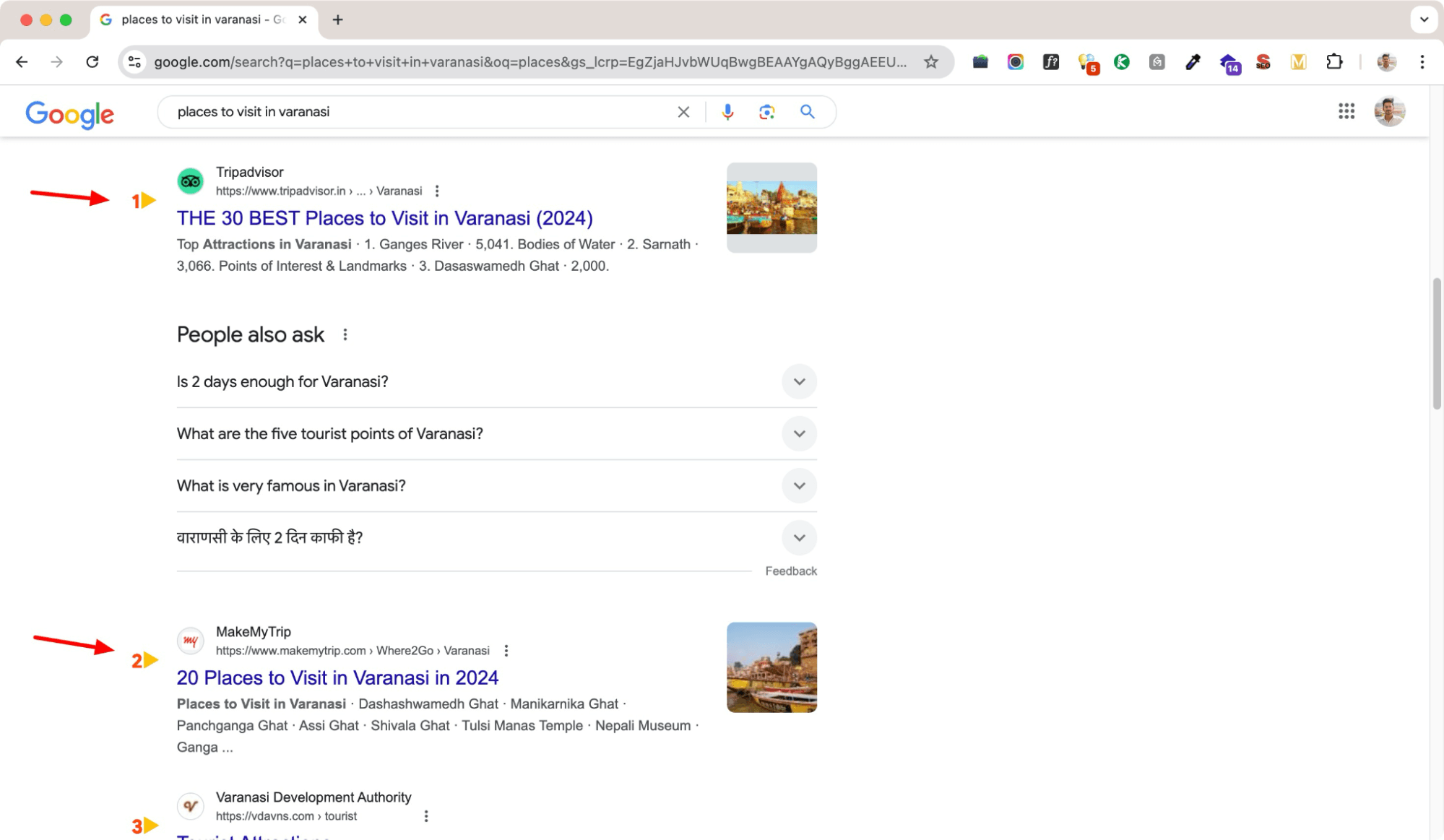
→ Share case studies about local customers or projects your business has worked on.

One important thing about localized content is, it not only engages your audience but also signals to search engines that your business is highly relevant to the local community.
How to do local SEO?
Local SEO involves implementation of several strategic steps. All you need to do then follow these steps and increase your chances of ranking higher for local search and attracting customers in your area. Let’s get started!
Set up your Google Business Profile

When you hear about a new brand, what’s the first thing you do? You Google it! Most of us do the same. But have you ever wondered why we turn to Google and not other search engines like Bing or Yahoo?
The answer is simple–Google is the king of search engines and no other search engine is even close. (Sorry Bing!) It dominates the market with a staggering 92.41% share. That’s why it’s essential to use all the tools Google offers to make your business more visible in search results.
Google Business Profile (formerly Google My Business) is a free tool that helps local businesses show up on Google Maps and search results.
It lets you display important details like photos of your store, your services, and even your contact information–making it easier for local customers to find and connect with you.
How to set up GBP (Google Business Profile)
Setting up your Google Business Profile is simple. All you need to do is follow the steps below.
- Make sure your name, address, and phone number (NAP) are accurate and exactly the same across all of your online listings.
- Choose 3–5 categories that reflect the services you provide. For example, for a car renting business, these could be:
- economy car rental
- luxury car rental
- car rental in [city]
- airport car pickup
- long-term car leasing
- Include your business hours, a short description (100–200 words), and high-quality images of your products or store.
- Regularly post updates about new services, offers, or events to keep your audience engaged.
Once you’ve filled in all the required details, Google will begin the verification process. Typically, it takes 3–7 business days, but in some cases, it might take longer–(around 2–3 weeks). After verification, your business profile will be live and look something like this ?
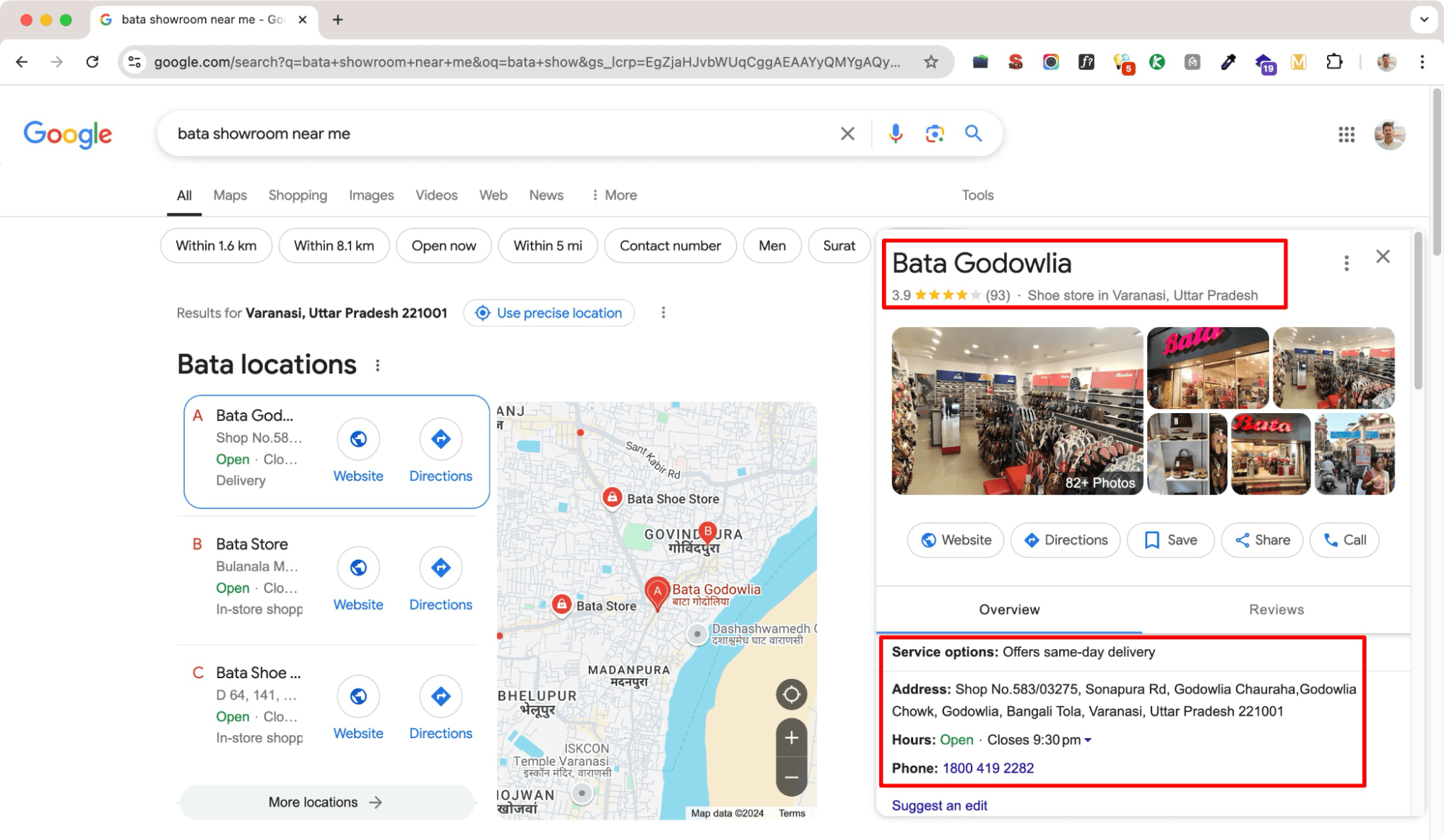
Choose your local keywords
After setting up your GBP, the next step is choosing the right local keywords. A keyword is a specific word or phrase users type in the search engine to get some desired results.
For example, if someone is searching for a car rental service in their area, they might type ‘car rentals near me’ into Google.
As a business owner, your main goal is to think about the keywords your customers are searching for and optimize your site for them.
How to find relevant keywords
There are different ways by which you can find relevant keywords.
Brainstorm
Start by listing all the words and phrases your customers might use to describe your business.
For instance: If you own a car rental business, keywords could include “cheap car rentals near me,” “luxury car rental in [city],” or “airport car pickup in [city].
Use keyword research tools
Once you have done your brainstorming, it’s time to bring some big brains. I mean use B2B SEO tools like Google Keyword Planner, Ahrefs or SEMrush to identify keywords.

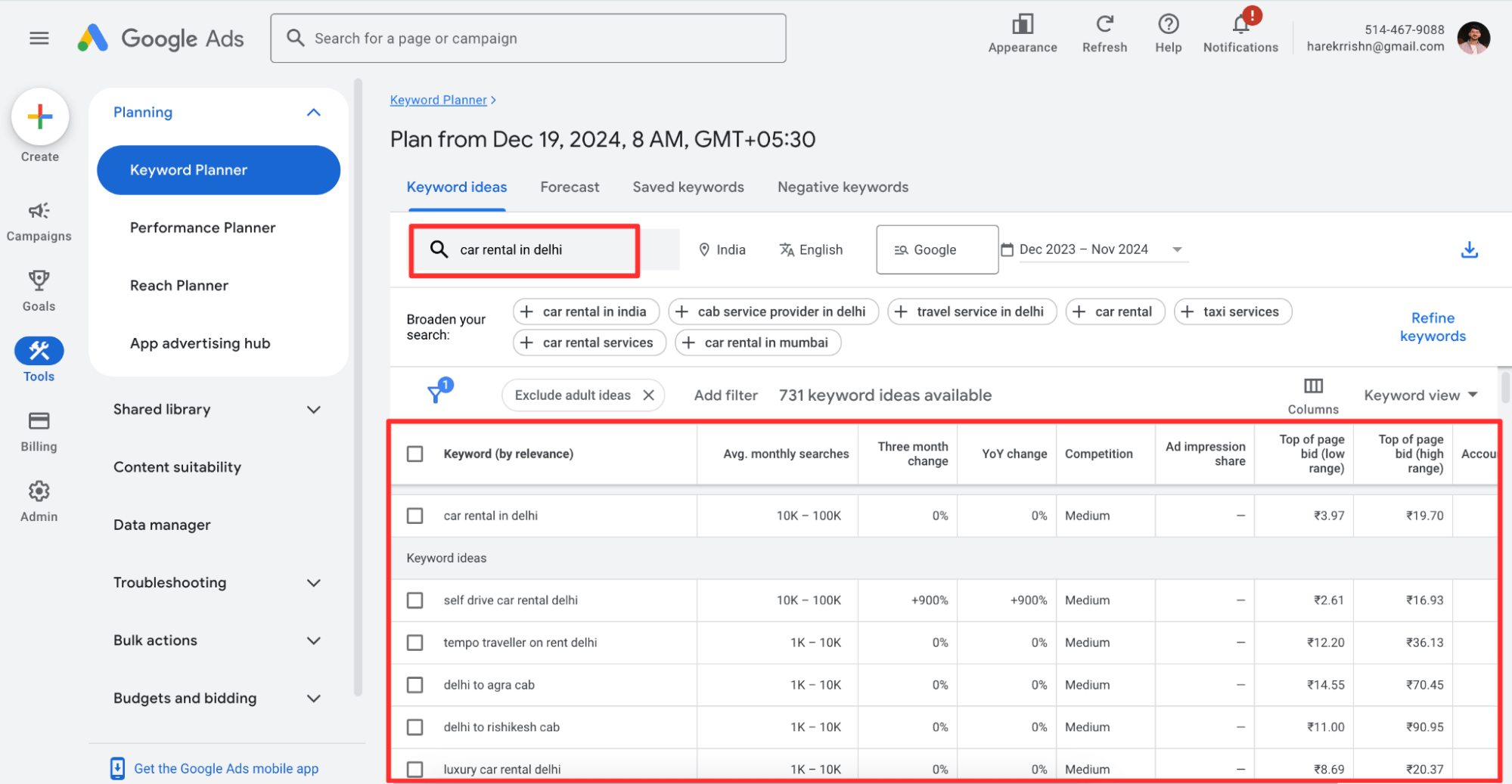
These tools will reveal important keywords you might not have thought about, as well as give you volume and competition data regarding your list of phrases.
Implementing keywords on your website
The final step is to incorporate these keywords naturally into your:
- Website content: Add them in product descriptions, service pages, and blogs.
- Meta descriptions: Optimize these to make your website appealing in search results.
- Headers: Use keywords in headings to improve on-page SEO and boost page authority.

Pro tip: Pick keywords with a traffic volume of 50+ searches per month. Because they have enough traffic and are easier to rank for!
Build local citations
Citations are mentions of your business on local directories, websites, or review platforms. Sites like Yelp, Yellow Pages, Houzz, as well as your local chamber of commerce, are good examples of online directories.
While building local citations, make sure your Name, Address, and Phone number (NAP) are consistent across all platforms.
You can also collaborate with other businesses in your area, your business partners, trusted customers, or suppliers to do link swaps.
For example, for our SEO companies in India blog we’ve built a citation from one of our business partners [MyOperator].
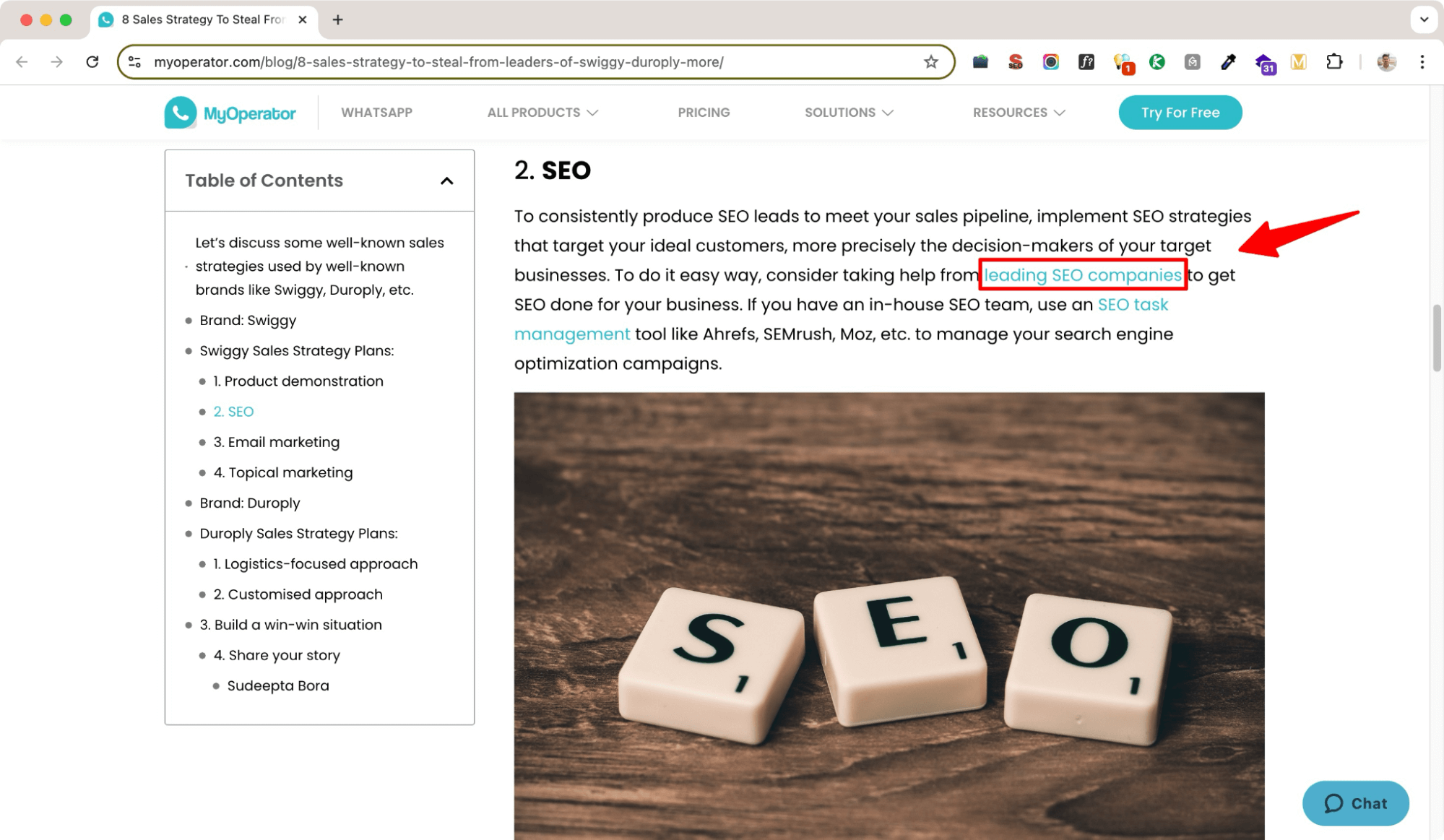
Pro tip: Use tools like Ahrefs or Moz to find where competitors earn backlinks and pitch those sites with a strong reason to link to your content instead of your competitors.
Create localized content
Now it’s time to create great content so that you can rank well in search engine results. Drive traffic to your site, and turn visitors into paying customers who trust your brand.
Easier said than done, but don’t worry. Being an expert in SEO and content marketing I have some tips for you.
Create content targeting your keywords
Remember the keywords you came up with in step two? They’re not done working for you yet! Use these keywords strategically in various content formats like blog posts, YouTube videos, social media posts, or podcasts.
For instance, if RenTrip is targeting the keyword “best self-drive car rental in Bangalore,” they will write a blog titled: “Top 5 Self-Drive Car Rentals in Bangalore: Why RenTrip is Your Best Choice.”
In the blog, they will:
- Talk about how self-drive car rentals are popular in Bangalore for easy and flexible travel.
- List the top self-drive car rental services, like RenTrip, Zoomcar, and MyChoize.
- Explain why RenTrip is better, like their low prices, a big variety of cars, and an easy booking process.
- Mention how RenTrip keeps their cars clean, safe, and ready to go.
- Share what real customers say about their great experience with RenTrip.
- Finish with a call to action like, “Need a car in Bangalore? Book with RenTrip today and enjoy the ride!”
Create for humans, not for robots
Nowadays search engines are smart enough to know when content is written just for SEO or for real people. So focus on creating content that is easy to consume and then sprinkle keywords where it fits contextually.
I know keywords are important for SEO but hey too many keywords look like keyword stuffing and can negatively affect your local SEO.
Remember, if your content answers their questions or solves their problems, it’s more likely to perform well.
Create content that relevant to your locals
Customize your SEO content to reflect the interests, culture, and needs of your local community.
For example, if you’re in a bakery business, write about how you incorporate local ingredients or partner with nearby farmers. This makes your business relatable and builds trust.
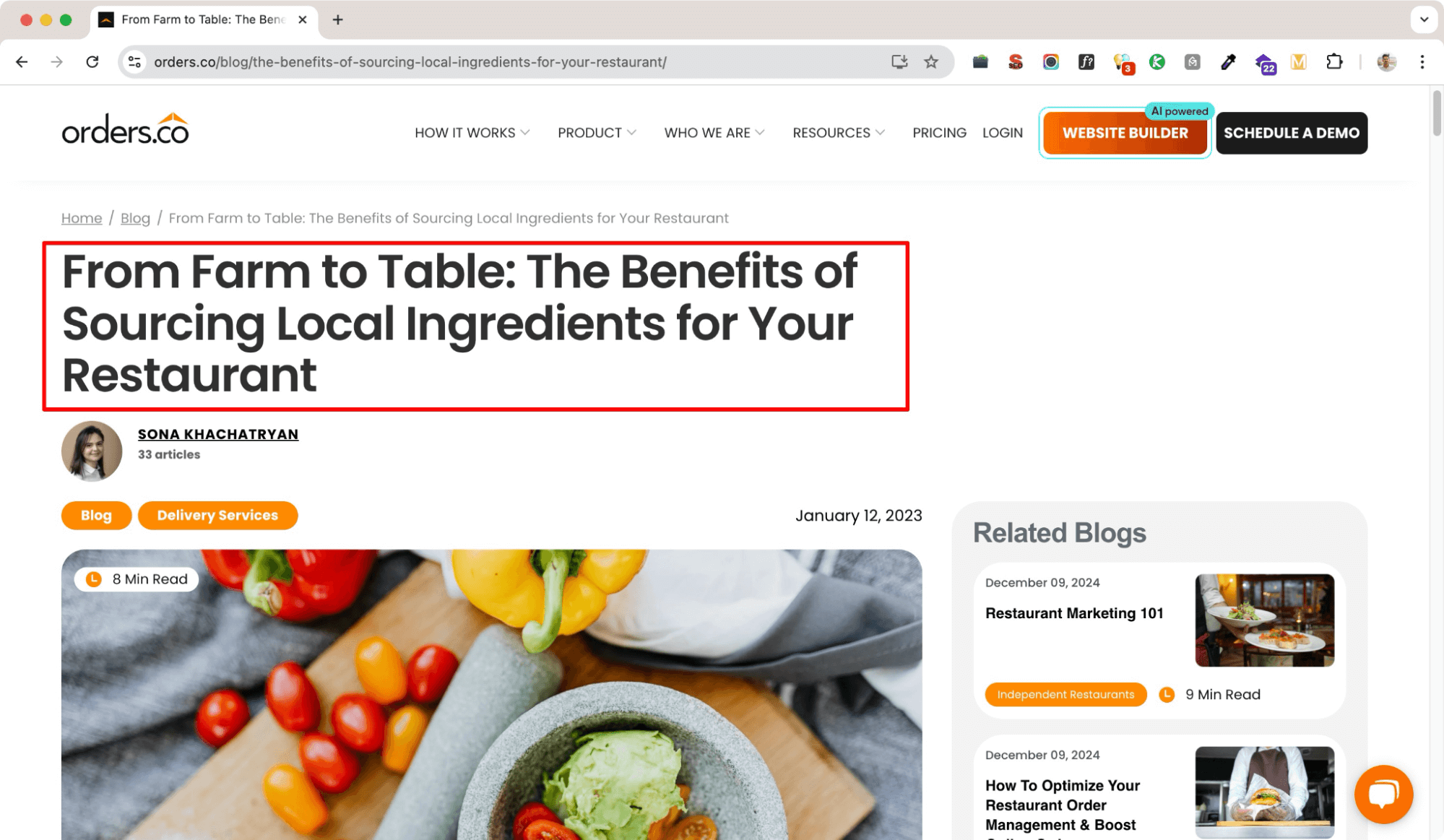
Build internal and external links
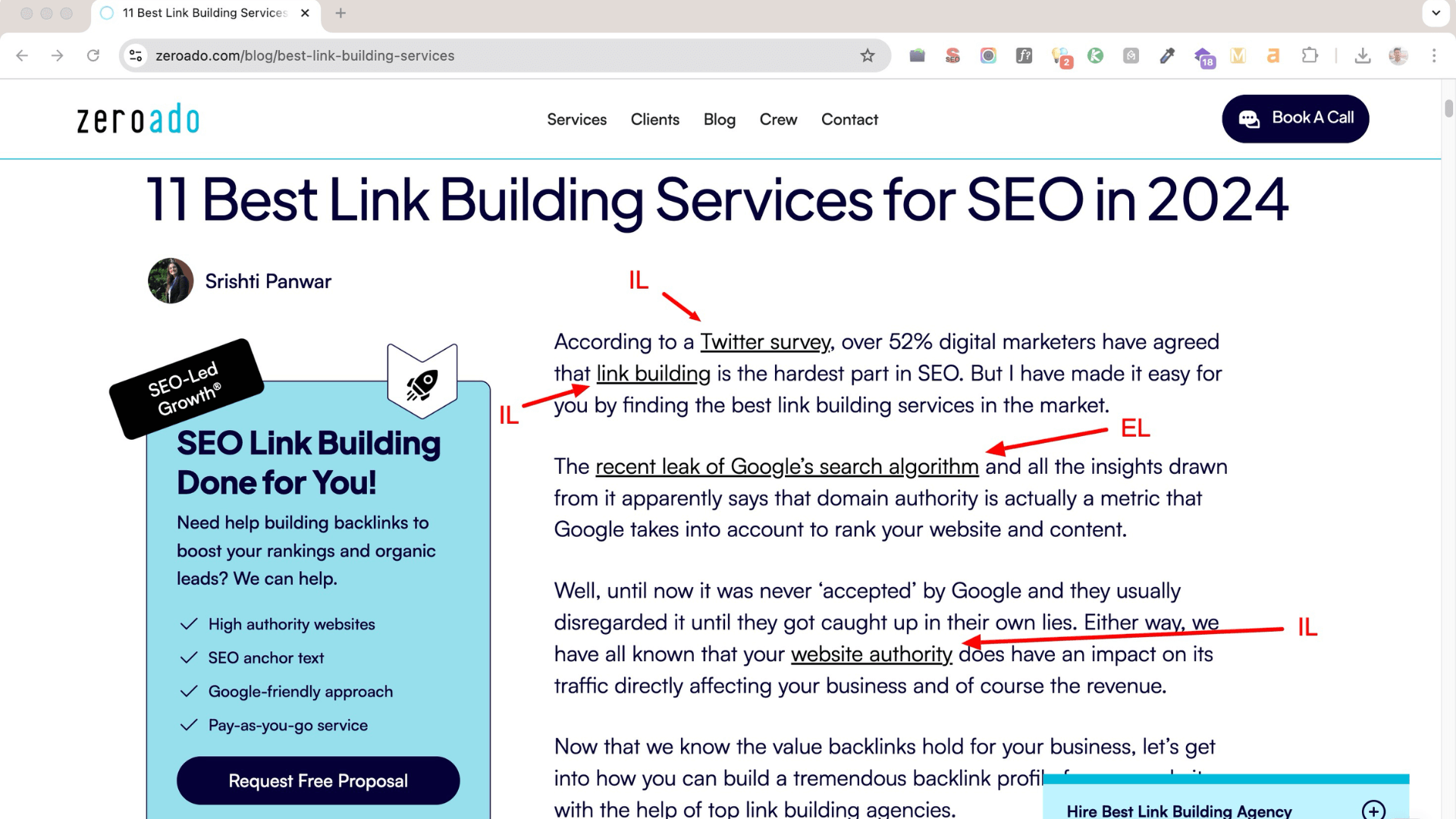
Start building links to other pages on your website (internal linking) to guide users and search engines to important content. Collaborate with other local businesses or directories to build local backlinks.
Share your content
Once your content is ready, promote it! Share it on social media, community forums, and local groups. Engage with your audience and encourage them to interact with your content by liking, commenting, or sharing.
Pro tip: All the local SEO tricks won’t work if your content sucks. So avoid publishing duplicate content, focus on creating quality pieces, and you’ll be rewarded with higher search engine rankings.
Encourage customer reviews
Positive reviews are crucial for local SEO. They show search engines that your business exists and help potential customers to make decisions. But the question is,
How do you get reviews?
Easy–just ask! A quick “We’d appreciate your feedback” works wonders. Then, make it super simple for customers by putting a QR or asking directly on your app/website.
For example, Uber makes it easy for customers to leave reviews. After every trip, the app asks, “Rate your driver?” Riders can quickly give a star rating (1 to 5) and add comments if they want.

But wait! What if customers leave bad reviews?
Don’t worry! If you treat your customers well and give them amazing experiences, the reviews will usually reflect that. Always aim to go the extra mile so they have nothing but good things to say about your business.
What’s the best platform for reviews?
Well it totally depends on your goal and voice. But If I had to choose one, it’d be Google. Why?
Simple–Because Google dominates the search engine market by owning about 86% of the global market share.
Other platforms are:
- Yelp – Popular for restaurants, cafes, salons, and local services.
- Facebook – Ideal for businesses with an active social media presence.
- TripAdvisor – Perfect for travel-related businesses like hotels, restaurants, and attractions.
- Houzz – A great option for architects, interior designers, and home improvement professionals.
Use local SEO tools for reporting
To get true value from your local SEO efforts, you need to monitor the performance and analyze the results. By the way, this holds true for any marketing strategy you implement–reporting and evaluation are crucial to improving your efforts.
There are several local SEO tools, both free and paid, that can help you measure and analyze your performance. Google Analytics and Google Search Console are must-have tools for tracking how people find and use your website.
→ Google Analytics shows you how local visitors interact with your site, providing insights into visitor behavior and page performance.
→ Google Search Console helps you see the search queries bringing users to your site, tracks impressions and clicks, and highlights areas that need improvement.
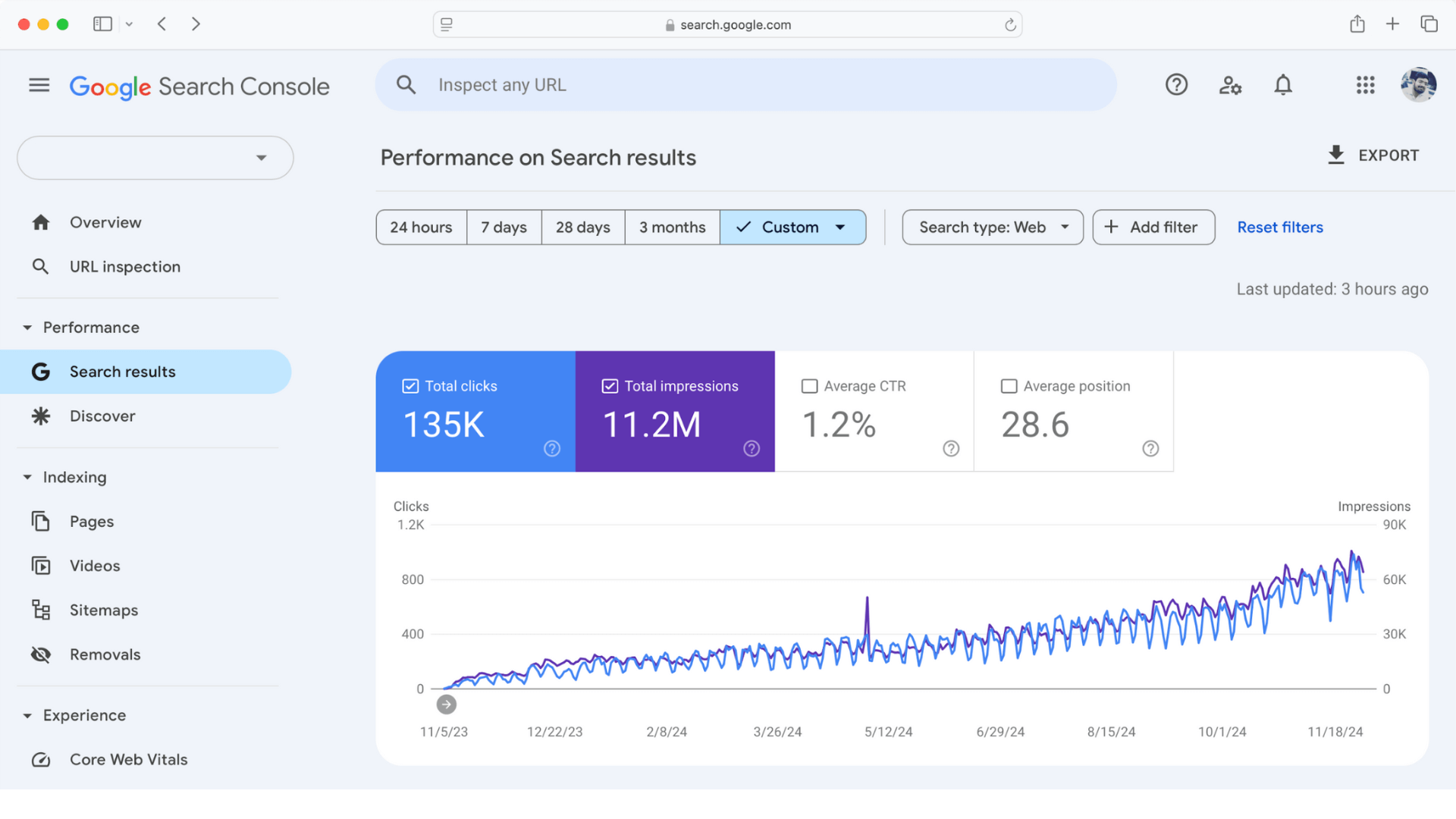
For a more comprehensive approach, you can also invest in SaaS SEO tools like Ahrefs, or SEMrush. They go beyond the basis by offering features like:
- Local rank tracking: Monitor how well your business ranks for specific keywords in local searches.
- Citation monitoring: Check the consistency and accuracy of your business details across local directories and platforms.
- Keyword performance analysis: Identify high-performing local keywords and track their effectiveness over time.
Analyze and optimize your approach
Here comes the final step of the local SEO strategy–monitor, analyze and optimize your approach. Use tools like Google Analytics (GA), Google Search Console (GSC), Ahrefs, or SEMrush to track website traffic, user behavior, and keyword performance.
Ask yourself:
- What’s working?
- What’s not?
Double down on successful tactics, such as targeting high-performing keywords or refining your content.
For areas that aren’t delivering results, make necessary adjustments like updating pages, improving your GBP profile, or exploring new keywords.
Also, keep an eye on competitors. Study what works for them and learn from their mistakes. By analyzing their strategies, you can uncover opportunities to set your brand apart and outshine the competition.
Pro tip: Data is your best friend. The deeper you dive into the insights, the sharper your strategy becomes.
On-page optimization checklist for local SEO
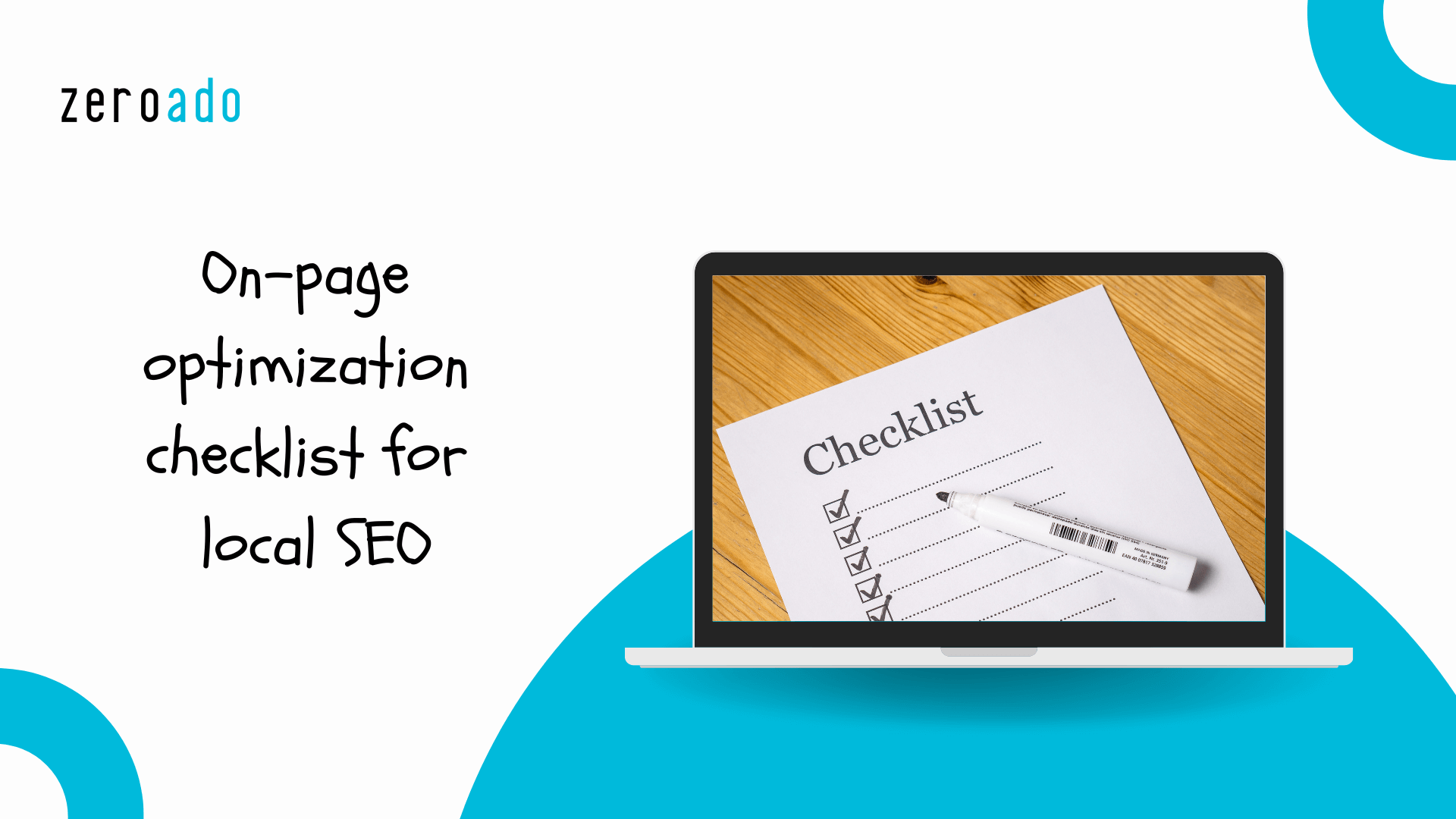
You now have the steps to optimize your business for local SEO, and I’m confident you’ll see better results with potential leads in your area.
To quickly assess your local SEO strategy, let me share a handy checklist to help you troubleshoot and ensure you’ve done all possible steps to optimize your website for local SEO:
| Checklist item | Checklist item |
|---|---|
| Title tags optimization | Add the main keyword and location in the title. Keep it under 60 characters. |
| Meta descriptions | Write a short description with keyword and location. Keep it under 142 characters. |
| Localized keywords | Use city, neighborhood, or region in your content and meta tags. |
| NAP consistency | Ensure business name, address, and phone number are the same on all pages. |
| URL structure | Include location and business type in the URL. Example: www.businessname.com/plumber-in-city |
| Local schema markup | Add a local business schema to help search engines understand your business. |
| Mobile optimization | Make sure your site works well on mobile devices. |
| Localized content | Write content specific to your location, such as blogs about local news. |
| Local reviews and ratings | Get reviews on Google Business Profile and other local sites. |
| Google Business Profile | Complete and verify your GBP profile with accurate details. |
| Embed Google map | Add a Google Map showing your business location. |
| Local backlinks | Get backlinks from local websites and businesses. |
| Image optimization | Use location keywords in image alt text. Example: “Plumber in [city] fixing a leak.” |
| Use local language | Use local words and phrases in your content. |
| Site speed | Make sure your website loads fast. |
| Local blog | Write blogs about local topics and events. |
| Social media profiles | Ensure your business name and location are correct on social media. |
| Internal linking | Link to other pages on your site with local keywords. |
| Local citations | List your business in local directories like Yelp or Yellow Pages. |
| Avoid duplicate content | Check for duplicate content and use canonical tags where needed. |
Off-page optimization checklist for local SEO
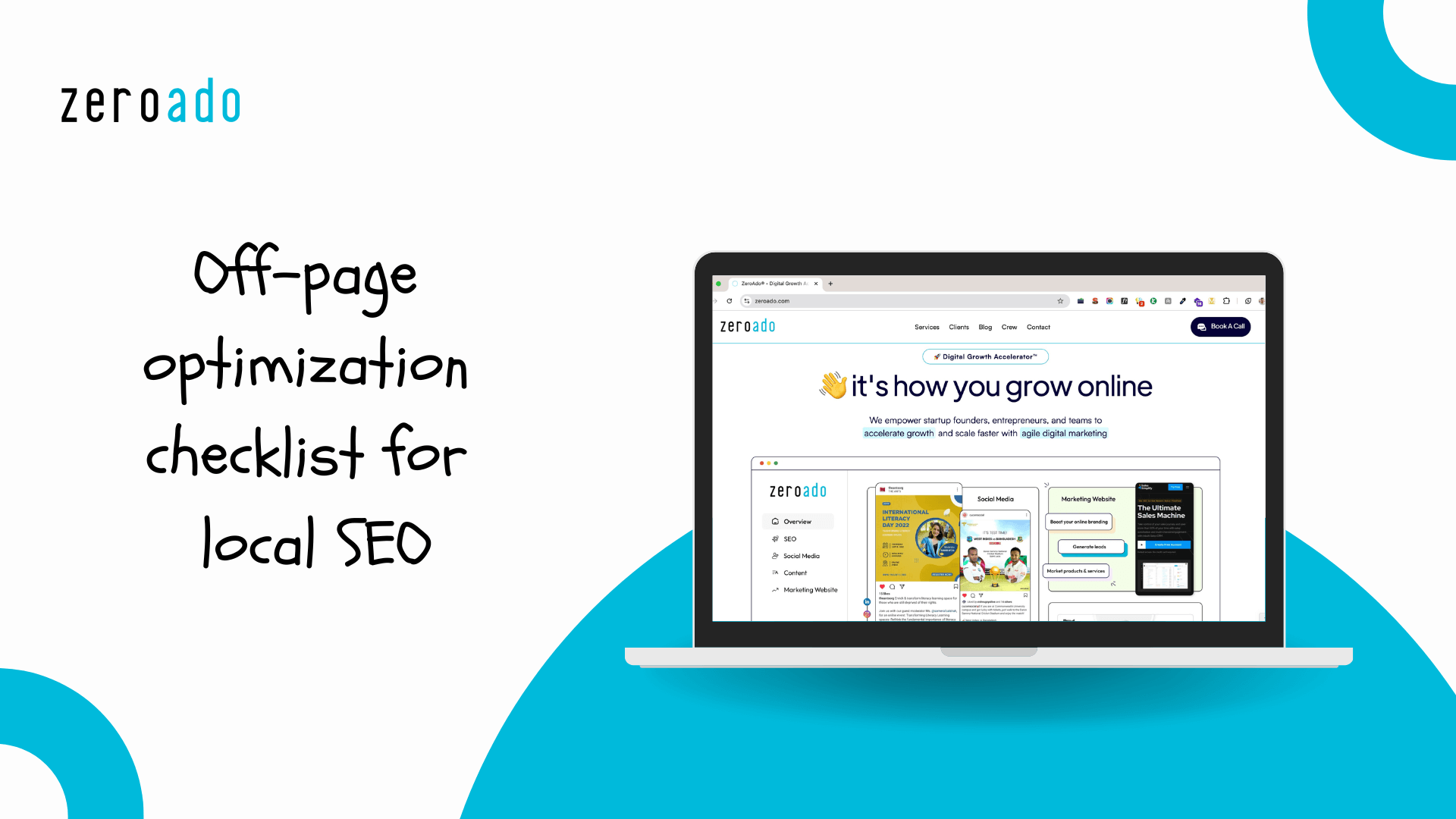
It’s not just important to optimize your website for local SEO, but you also need to build trust with your business. This means getting mentions or SEO backlinks from trusted sites, like reviews or other websites, to show Google that your business is reliable.
Google looks at what others say about your business to decide if it deserves a higher ranking in local search results. This is where off-page SEO comes in.
To make sure you’re doing enough off-page SEO for local search, match your efforts from the below checklist.
| Checklist item | Details |
|---|---|
| Google Business Profile | Ensure your GBP profile is complete and verified with correct information. |
| Local backlinks | Obtain backlinks from local websites and businesses relevant to your industry. |
| Local citations | List your business in local online directories (e.g., Yelp, Yellow Pages). |
| Social media profiles | Ensure business name, address, and phone number (NAP) are accurate on social platforms. |
| Local reviews and ratings | Collect reviews on platforms like Google, Yelp, and local directories. |
| Embed Google Map | Embed a Google map with your business location on your website or blog. |
| Influencer marketing | Collaborate with local influencers or bloggers to promote your business. |
| Press mentions | Get featured in local news outlets, blogs, or press releases. |
| Link building with local partners | Collaborate with other local businesses to exchange links. |
| Social proof | Encourage social shares and mentions by your local customers or partners. |
Common mistakes in local SEO
Let’s see some common mistakes in local SEO that can affect your business ranks in local search results.
Inconsistent NAP (Name, Address, Phone Number)
If your business information isn’t consistent across all platforms (like your website, Google Business Profile, and local directories), Google may not trust the accuracy of your business. This can hurt your local SEO rankings.
Ignoring mobile optimization
More and more people are using mobile devices to search for local businesses. If your website isn’t mobile-friendly, you could lose potential customers, and your local search rankings might drop.
Not claiming or optimizing Google Business Profile (GBP)
Google Business Profile is crucial for local SEO. Not having an optimized GBP profile means you miss out on showing up in local searches, Google Maps, and reviews.
Not building local backlinks
Backlinks from local businesses or local websites are important for building website authority. Focusing only on national or international links can hurt your local rankings.
Overlooking local reviews
Reviews are an important ranking factor for local SEO. Not getting enough positive reviews or not responding to reviews can signal to Google that your business is less trustworthy or relevant.
Not using local keywords
Failing to include keywords specific to your location in your content, meta tags, and headers can prevent your business from ranking for searches in your area.
Skipping local citations
Citations are online mentions of your business on local directories like Yelp or Yellow Pages. Not having these can make it harder for Google to find and trust your business.
Not replying to customer reviews
Ignoring customer reviews, whether positive or negative, can signal to Google (and customers) that you’re not engaged with your community. Responding to reviews shows that you value customer feedback, and it can improve your local SEO ranking.
Ready to connect with your local audience through local SEO
With the right local SEO strategy, you’re all set to make your business visible to the audience that matters most–your local community.
By focusing on on-page and off-page optimizations, maintaining consistent NAP details, gathering local reviews, and leveraging tools like Google Business Profile, you can create a strong local presence.
Remember, local SEO isn’t just about rankings, it’s about building trust and making meaningful connections with your customers.
If you need any help, ZeroAdo can streamline your local SEO efforts by simplifying processes like tracking performance, managing citations, and optimizing content. With ZeroAdo, you can focus on growing your business while we handle the local SEO.
Start today with ZeroAdo and watch your local visibility soar! ?
